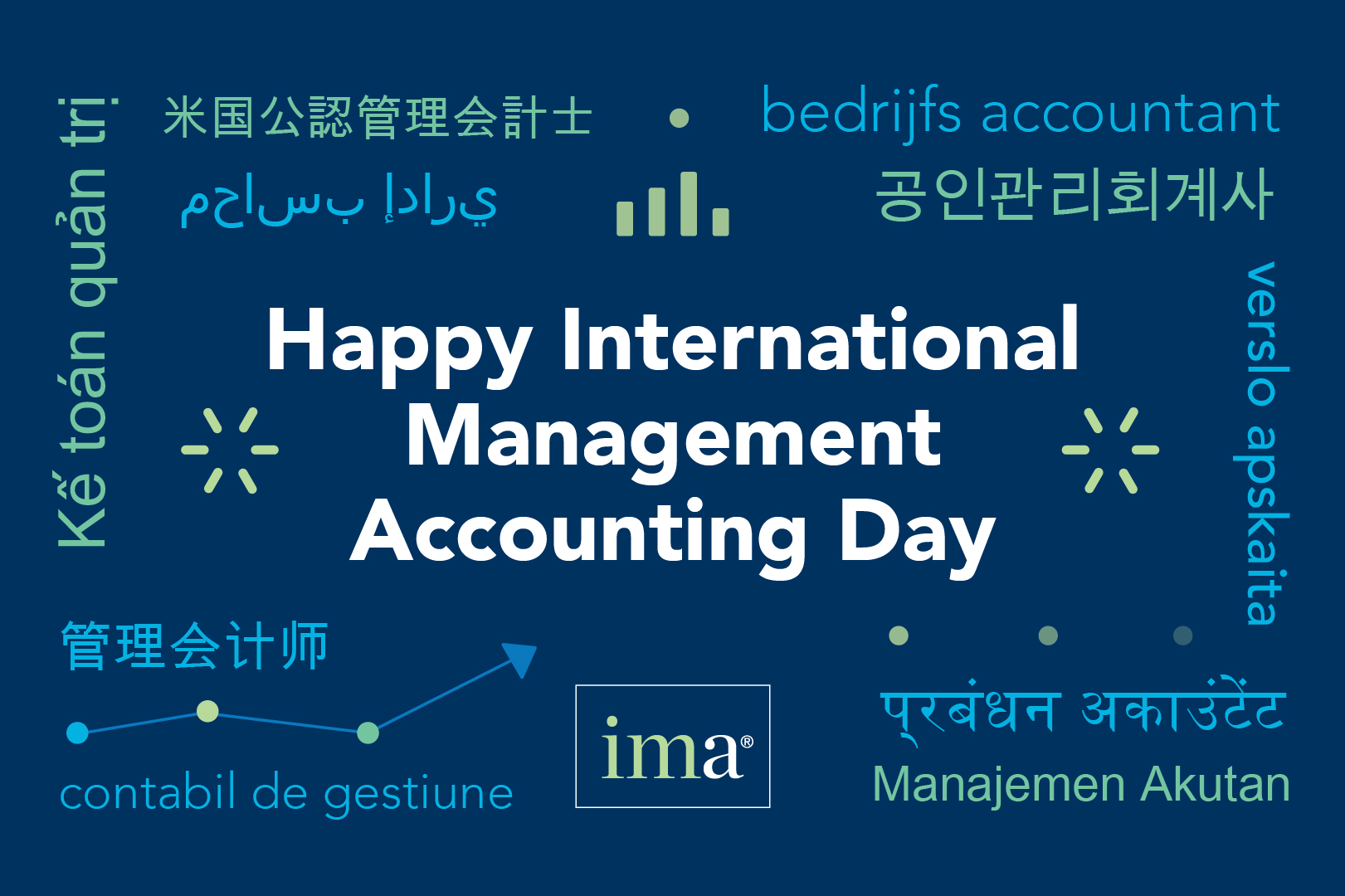Because management accountants are vital to the financial health of organizations and society, IMA® (Institute of Management Accountants) created a day of observance for them called International Management Accounting Day, celebrated annually on May 6. Around the world, this year’s day of recognition is occurring against the backdrop of a labor crisis, with one in three employers reporting significant challenges in filling open positions according to Manpower Group’s 2021 Talent Shortage Survey. This trend is especially pronounced in finance with Robert Half listing finance as one of the top 5 industries experiencing a talent shortage.
This crisis jeopardizes performance and growth at the employer level as well as at the national level. The crisis drivers are multi-faceted and include increased competition for in-demand skills by employers and increased expectations for flexibility and work-life balance by employees. Many attribute this growing trend to be the result of COVID, where many employees worked remotely for the first time and had the opportunity to pause and re-evaluate their personal and career goals.
The employer-employee relationship has always been symbiotic, but now it is more apparent to employers that without skilled and engaged employees they will have trouble meeting revenue goals and growth projections. So what are employers doing to win the war for talent? According to a recent survey by Willis Towers Watson, “70% of employers are placing a broader emphasis on DE&I strategies as a recruitment and retention tool.”
What is the connection between DE&I and improved recruitment and retention? According to the American Marketing Association, many employers do not realize how DE&I contributes to every individual’s experience of their organization, from the day they start to the day they leave. Steve Heisler of AMA writes “…onboarding policies might not take into account what it’s like to be the only person of a race or ethnicity in the office, or employees might not yet know what constitutes a microaggression.”
When DE&I principles are embedded in organizational culture, it is apparent to potential hires. Donald Thompson, co-founder of the DEI training and certification agency The Diversity Movement, shared his thoughts on this topic in the same AMA article. “Potential hires of color will research where a company stands on the principles of DEI,” Thompson said. “But even if an organization is still in the early stages of increasing representation in its staff, inviting a new hire of color into the company-wide conversation on the topic can entice talent to stay for the long haul.”
Amid accelerated adoption of digital transformation initiatives and a volatile and disruptive macroeconomic environment, employers need diverse talent to meet long-term goals and to stay for the long haul, supported by strong DE&I initiatives. Yet new research by IMA, CalCPA, and IFAC entitled, “Diversifying Global Accounting Talent: Actionable Solutions for Progress,” finds deficiencies in the very same DE&I practices that help women, people of color, and those from nontraditional backgrounds stay in jobs for the long haul. For example, of the 8,500 practitioners canvassed for this research, fewer than 60% viewed the profession as equitable.
Women (a group disproportionality affected by the pandemic as reported by Deloitte) expressed that “they have experienced inequitable treatment and exclusive behaviors that impacted career decisions and prompted some to leave the profession.” DE&I programs also address ethical concerns around equal access to high-paying jobs and attract a wider net of people who can enter the accounting and finance profession. From an ethical perspective, implementing a DE&I program is one of the best ways to address the alarming rate of those who believe the profession as it exists today is not fair or equitable. On International Management Accounting Day, discussions around DE&I strategy are warranted, in keeping with the ethical obligations all management accountants must uphold.
Change in the accounting and finance profession is needed and “coordinated and collaborative action is required.” Towards that end, the Solutions research series provides actionable practices that can be used to retain and promote diverse talent. These practices are linked back to U.N. Sustainable Development Goals or SDGs so accounting and finance professionals can link DE&I to sustainable business management. They also link back to earlier “calls to action” on DE&I by IMA. For example, in June 2020, IMA released its Diversity & Inclusion Toolkit, which is designed to be a starter kit or checkpoint for organizations that are ready to embark on creating a DE&I program.
IMA’s most recent Solutions research series goes deeper into DE&I with an inventory of 70 actionable DE&I practices that any organization can adopt. An actionable practice included in the research recommendations includes providing on-site daycare which is linked to U.N. SDG Goal 5 (Achieving gender equality and empowering all girls and women). This practice would directly benefit women, who are often the primary caregiver for children.
Another way meaningful progress in DE&I can be achieved is by organizations having dedicated funding, resources, and personnel to pursue greater DE&I. The past two years have seen an uptick in hires of DE&I Directors and the creation of DE&I-dedicated roles. People like Nzinga Shaw, President and Global Practice Head of DEI TurnkeyZRG (who will be speaking at IMA’s upcoming Accounting and Finance Conference 2022) are now working to increase diversity in the ranks of senior leadership. Shaw is known for her pioneering DE&I work with the NBA’s Atlanta Hawks, launching the MOSAIC symposium (Model of Shaping Atlanta through Inclusive Conversations) and making the Hawks the first professional sports team to celebrate the LGTBQ community.
On this International Management Accounting Day when top accounting and finance talent needs to be sourced, placed, and retained by organizations for the long-term, it is incumbent upon everyone to champion and nurture DE&I programs. Employers and employees have a professional stake in ensuring these programs become embedded in organizational culture and practice. IMA’s new research on this topic may provide the actionable recommendations needed to realize meaningful change in this critical space.

